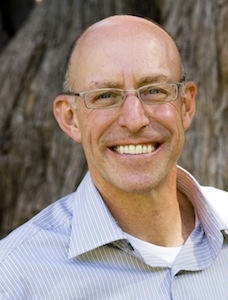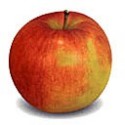It was a dark and stormy night… wait, this isn’t a piece of “really bad fiction,” it’s January in Seattle.

Packing the concert hall to hear Michael Pollan speak were 2,500 of Seattle’s Gortex®-garbed food fans. Rubbing elbows in the lobby were college kids in jeans clutching $25 tickets for seats in the back of the third balcony and the very fashionable foodistas who paid $250 for “premium orchestra seats and a post event private dinner” with Mr. Pollan.
Mashing together observations from three of his books – Food Rules, In Defense of Food, and The Omnivore’s Dilemma – Pollan covered subjects ranging from America’s eating disorder and “nutritionism” to healthy living and the wisdom of food.
Opening with his premise that, “you can’t have a healthy population without a healthy diet and you can’t have a healthy diet without a healthy agriculture,” Pollan offered to expand the definition of health.
Simply shopping for good food is an intimidating experience, and from a shopping bag (paper!) emblazoned with the very recognizable logo of a local supermarket, he unloaded about a dozen different “edible food-like substances” ranging from Trix breakfast cereal to an entirely new, engineered drink called Muscle Milk. Which, despite its name, contains no milk – or other dairy products – at all.
Except for the package of Twinkies and the can of Coke, all the products bore some type of health claim putting them in what the packaged food manufacturers call the “Better-for-You” category.
Less fat, less sodium, more antioxidants… all evil elements in “nutritionism” – the ideology of food. We as Americans are obsessed with nutrients and, unfortunately, that obsession has not resulted in a healthier population.
In opposition to the French Paradox, where despite a diet that includes foods heavy in butter and cream, the French continue to be slim and healthy; we suffer from the American Paradox. We worry more about dieting and health than anyone else in the world, and yet more than two-thirds of Americans are overweight and more than half could be diagnosed with diabetes by 2020.
Modern nutritionism started in 1977 with new dietary rules that sought to reduce the amount of fat, particularly saturated fat, that Americans eat. The low-fat campaign made us all fat, partly because it demonized one nutrient and more or less gave a “free pass” to the rest.
Consumers assumed that “low-fat” also meant low calorie, and the result has been that we now consume 300 more calories a day than we did in 1977. That has added up to 17 extra pounds on American men and 19 extra pounds on women.
What can we do?
The first step: get off the “Western diet,” that is, one that’s heavy in processed sugars, fats, and starches; high in salt and meats; and low in fresh fruits and vegetables. We can go back to the diet of our ancestors.
We need to seek the source of the wisdom about our food through place-based culture, aphorisms, myths, and rules handed down from parent to child. We no longer have a food culture defined by the best use of local resources, artistically shaped over time. We no longer have a “mom” that understands and prepares good food.
Making a sustainable change in the way we eat and diversifying our diet will support a diversified agriculture. Farmers markets do not sell “edible food-like substances,” there you will find whole, minimally processed, fresh foods.
 It is through farmers markets we discover that food is not a product, food is a relationship. And the relationship is not just with the farmer or the producer of our food, but also a relationship with our community. The farmers market has become the new public square.
It is through farmers markets we discover that food is not a product, food is a relationship. And the relationship is not just with the farmer or the producer of our food, but also a relationship with our community. The farmers market has become the new public square.
Michael Pollan’s advice for a healthy diet and lifestyle still remains: Eat food. Not too much. Mostly plants.
By the way, the one real food item in his supermarket shopping bag? An apple. Clearly food, a plant, and just the right sized serving!
